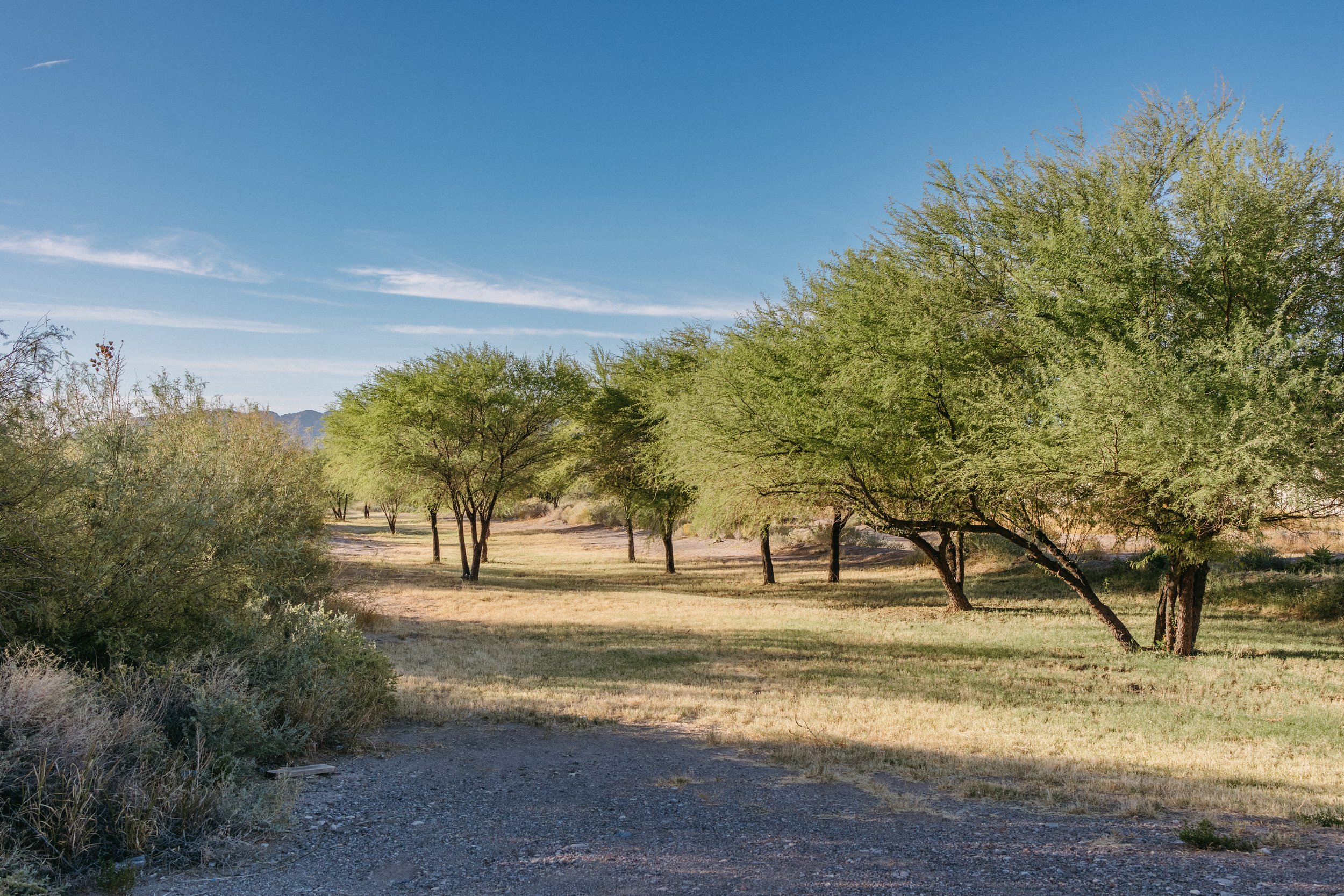
We engage Big Bend’s communities in the protection of land, dark skies, water, and culture in the Far West Texas region.
Neighborhood Coordinators are local residents who will lead participation efforts, strengthen communication, and build trust between community members and the project team.
The People of La Junta for Preservation invites the public to join a historic and deeply meaningful Reburial Ceremony for seven Ancestors of La Junta on Saturday, November 1, 2025, at 9:00 a.m. at the Cementerio del Barrio de los Lipanes in Presidio, Texas. A community reception will follow at the American Legion.
A $12.7 million grant for a transformative project focused on climate resilience and pollution reduction using green infrastructure, nature-based solutions, and technology to make a greener and more resilient Presidio.
Big Bend River Ranger program engages students in the environment, outdoor activities, and help preserve natural resources for future generations. Students hear from guest speakers about environmental science and take field trips to monitor the water quality of the Rio Grande.
Help us ask Presidio County and TxDOT to honor the original name of this landmark. Cibolo, the Spanish word for buffalo, is a term that spans all possible dimensions of Presidio County's identity—”Cibolo Rock” is a place name that will honor the Indigenous peoples and the cibolo herds of La Junta.
Students in Alpine, Fort Davis, Marfa, Presidio, and Terlingua are learning about indoor hydroponic gardening using the “Flex Farm,” a stand-alone vertical farm from Fork Farms.
A project in partnership with the Lipan Apache Tribe of Texas, to protect this sacred burial ground, have the land given back to the Tribe, and to obtain the first Tribally-authored historical marker in the state of Texas. The project to protect the site prevents erosion of the burial mound, creates space for reflection, and teaches about the area’s Indigenous history.
Big Bend Conservation Alliance, in partnership with the Texas Tribal Buffalo Project, is creating a garden behind the Presidio Activity Center comprised of three garden beds and three fig trees with drip irrigation.
Students at Marfa High School participated in a month-long challenge to help preserve the night skies by connecting residents to Big Bend Conservation Alliance’s lighting incentive program.
Big Bend Conservation Alliance in partnership with Jumano Nation of Texas attend the annual Marfa Lights Festival to facilitate dialogue about Jumano history, culture, and family connections.
A pollinator garden, bird blind, and public engagement fort the BJ Bishop Wetlands thanks to a grant from the Great Texas Birding Classic.
Small gardens in public spaces and Presidio schools along with workshops to engage students, families, and elders in planting and growing in La Junta de los Rios.
Big Bend Conservation Alliance is the regional coordinator for Lights Out Texas, a state-wide initiative that asks Texans to dim non-essential lights to support fall and spring birds during their migration. Pickup a Bird Care Package at area libraries.
Trees make for a healthier environment—one that absorbs pollution and lowers temperatures. The program works with community partners throughout the region to plant trees.
Federal Bureau of Reclamation has awarded a WaterSMART Applied Science Grant to Big Bend Conservation Alliance—in partnership with local groundwater conservation districts to fund a common data management platform and data sharing module.















